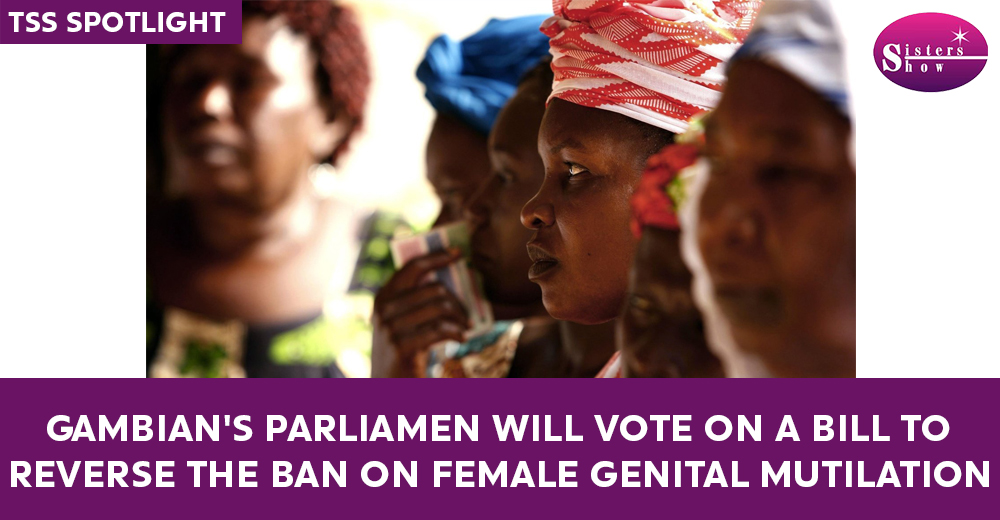
Gambian’s parliament will vote on a bill to reverse the ban on female genital mutilation
In a contentious move that has sparked global concern, the Gambian parliament is poised to vote on a bill that would overturn the ban on female genital mutilation (FGM) in the West African nation. Scheduled for Monday, this pivotal decision has drawn sharp criticism from human rights organizations and activists worldwide.
Female genital mutilation, as defined by the World Health Organization, encompasses the partial or total removal of the external female genitalia or other forms of harm to the female genital organs, all for non-medical reasons. This practice, condemned for its severe health consequences, poses risks such as excessive bleeding, urinary complications, infections, childbirth difficulties, and heightened stillbirth rates.
Under the leadership of former president Yahya Jammeh, the Women’s Amendment Act of 2015 was enacted, effectively criminalizing FGM and imposing stringent penalties on perpetrators. However, the proposed reversal threatens to undo this hard-won progress, igniting fears of a resurgence in women’s rights violations.
Statistics from UNICEF paint a grim picture, revealing that approximately 46% of girls aged 14 and younger in Gambia have undergone FGM, with the prevalence soaring to a staggering 73% among girls and women aged 15 to 49. Despite concerted efforts to combat this harmful practice, recent events have underscored the deeply entrenched cultural divisions within Gambian society.
Last year, when three Gambian women were convicted of performing FGM on several children, the nation found itself at a crossroads. While fines were paid by an Islamic cleric on behalf of the offenders, the Gambian Supreme Islamic Council issued a fatwa asserting FGM as a religious virtue, further polarizing public opinion.
The push for legislative change has been met with fierce opposition from human rights advocates, who warn of dire consequences for women’s rights and Gambia’s international standing. Mich��le Eken, a senior researcher at Amnesty International, condemned the proposed bill as a regressive step, urging parliamentarians tject it unequivocally.
Echoing these sentiments, Paleki Ayang, Gender Advisor for the Middle East and North Africa at Equality Now, emphasized the importance of a multifaceted approach to combating FGM. She stressed the critical role of robust legal frameworks in deterring perpetrators and safeguarding vulnerable women and girls.
The potential reversal of the Women’s Amendment Act raises serious concerns about Gambia’s commitment to upholding international human rights standards. If passed, it would constitute a flagrant violation of treaties such as the Convention on the Elimination of All Forms of Discrimination against Women (CEDAW), the Convention on the Rights of the Child, and the African Charter on the Rights and Welfare of the Child.
Furthermore, the proposed legislation flies in the face of the fundamental principle of equal dignity enshrined in the Gambian Constitution, casting a shadow over the nation’s moral and legal obligations.
In light of these developments, global attention is now focused on the outcome of Monday’s parliamentary vote. The decision facing Gambian lawmakers is not merely legislative but moral, with far-reaching implications for the rights and well-being of women and girls across the country.
As the world awaits this pivotal moment in Gambia’s history, the debate over FGM continues to underscore the urgent need for concerted action to eradicate this abhorrent practice once and for all. Only by upholding the rights and dignity of every individual can Gambia truly aspire to progress and prosperity for all its citizens.




